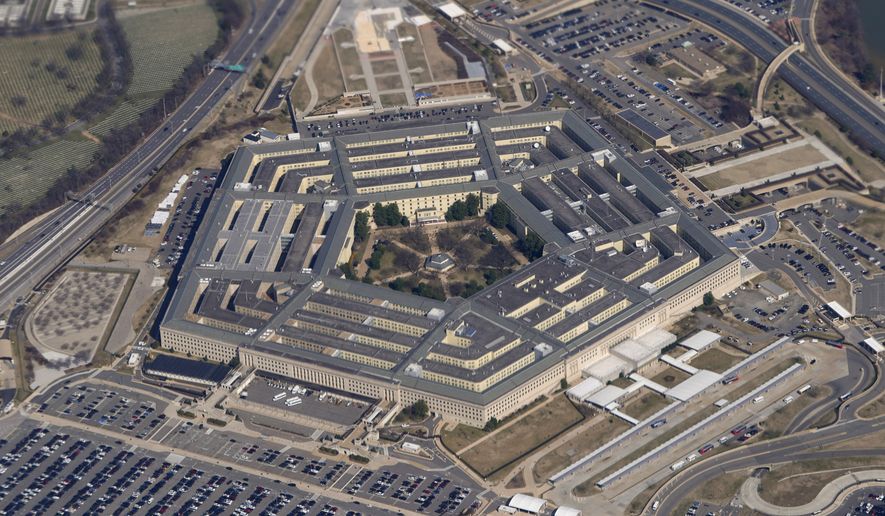The burgeoning crisis in Ukraine has shattered any hope that Democrats had of slashing defense spending in President Biden’s first budget.
Even longtime advocates of reducing the Pentagon budget admit that Russia’s war on Ukraine has drastically changed the political environment in Washington.
“Without question, it’s going to have to be bigger than we thought,” said House Armed Services Chairman Adam Smith, Washington Democrat. “The Russian invasion of Ukraine fundamentally altered what our national security posture and what our defense posture needs to be. It made it more complicated and it made it more expensive. I don’t see much way to argue it.”
The complications stem from the U.S. having to both bolster Ukraine and shore up bordering NATO members in case Russian President Vladimir Putin expands the war. To meet both requirements, lawmakers plan to include roughly $14 billion in emergency aid as part of the annual government funding bill that has to pass by March 11.
Roughly half the aid money will go to arm Ukraine while also providing humanitarian assistance for refugees. The other half is earmarked for deploying U.S. troops to NATO countries bordering Ukraine, including Poland.
Adding emergency aid for Ukraine to the budget will swell defense spending to levels unseen in roughly a decade. While most Democrats resigned themselves to passing the budget this week, few are comfortable with the added defense spending.
“I support giving Ukraine the resources it needs to defend its people, I just have legitimate concerns about the size and scope,” said Rep. Ilhan Omar, a Minnesota Democrat and member of the far-left “Squad” who in the past opposed a bigger defense budget.
The political reality facing Congress is one few progressives cherish. A significant faction even attempted to derail bipartisan talks over including emergency aid to Ukraine within the budget.
“It’s been like pulling teeth to get out of House Democrats what the Ukrainians obviously need at this particular time,” said Senate Minority Leader Mitch McConnell, a Kentucky Republican who helped negotiate the aid package. “It needs to be passed and it needs to be passed quickly.”
Democrats, especially those from the party’s far-left wing, have long championed reducing the defense budget to boost social welfare spending. The policy has been a key characteristic of Democrats since even before the Cold War came to a close.
Mr. Biden initially followed the party line during his first year in office by seeking to trim defense spending, which was nearly $740 billion during former President Donald Trump’s final year in the White House.
Those ambitions, however, were shelved when Afghanistan collapsed at the hands of the fundamentalist Taliban. Instead of cutting military spending, Mr. Biden was forced to approve a $25 billion boost within the annual defense policy bill last year.
“I am shocked that this Congress continues to spend over $700 billion on wasteful weapons contracts and Pentagon waste, and then turns around and calls for cuts to programs that help the poor, the elderly and the sick,” Mrs. Omar said at the time. “We should be investing in the American people, not in weapons manufacturers.”
Progressives hoped to get even by trimming overall defense spending this year when crafting a year-long budget deal with Republicans.
Since such a deal requires the support of at least 10 GOP senators to overcome a filibuster, Democrats were forced to back down. Instead, lawmakers accepted a proposal to keep domestic and defense spending roughly equal.
Russia’s invasion of Ukraine changed the calculus. Shortly after the invasion, Mr. Biden pushed lawmakers to approve $6.4 billion in emergency aid to Ukraine.
The figure climbed to $10 billion and then to $14 billion this week as Democrats delayed immediate consideration by folding the emergency aid package within the year-long budget deal.
“I’m always going to be cautious of the people who always want to spend more money no matter what,” said Mr. Smith. “But the decision to invade Ukraine by Russia changes it, and it’s going to go up. There’s no doubt about it.”
• Haris Alic can be reached at halic@washingtontimes.com.




Please read our comment policy before commenting.